Volcanoes are erupting in The Philippines, but on-fire Australia received some welcome rain. The Iran war cries have been called off and The Donald’s military powers are about to be hamstrung by the Senate. Meanwhile, his impeachment trial is starting, and we’re all on Twitter for a front-row seat.
What Could Go Right? Eyes on Brazil’s Amazon
Deforestation rates have plummeted. But what does the overall picture look like?
This is our weekly newsletter, What Could Go Right? Sign up here to receive it in your inbox every Thursday at 5am ET. You can read past issues here.
Eyes on Brazil’s Amazon
In October 2022 Brazil held presidential elections between leftist former president Luiz Inacio Lula da Silva (often referred to as Lula) and socially conservative nationalist Jair Bolsonaro. When Lula won, far-right supporters of Bolsonaro invaded several of Brazil’s federal government buildings, drawing comparisons to the United States’ January 6th Capitol attack. Despite the riots, Lula took office almost a year ago in January 2023.
Leaving most of that story and Brazilian politics aside, however, I’d like to take a look at one specific campaign promise that Lula is delivering on, and which has an outsized global effect: halting deforestation in the Amazon. Perhaps contrary to popular belief, the vast majority of deforestation today occurs in Africa and Latin America—particularly in Brazil—which is why looking at the Amazon is so important.
Background facts:
- The Amazon is the world’s largest rainforest and thus absorbs massive amounts of carbon from the atmosphere. It’s also one of the most biodiverse places on earth.
- Two-thirds of the Amazon is in Brazil. Of that, close to 20 percent has been deforested in the last 50 years.
- Most of the deforestation is from land clearing for infrastructure projects, pasture, farmland, and mining.
- Deforestation is a contentious issue for Brazilians as it is an economic boon for some and a loss for others. The Amazon area only constitutes 10 percent of Brazil’s GDP, but affects millions of people.
The deforestation history:
- Deforestation in Brazil’s Amazon got going in the 1960s and escalated in the 70s and 80s.
- Conservation efforts began in the late 80s, but deforestation continued to rise into the 90s.
- In the early millennium, Lula’s government (same Lula!) got serious about reversing deforestation. Between 2005 and 2012, forest clearance was reduced by 80 percent.
- But starting in 2014 and then particularly from 2019 on, under Bolsonaro’s watch, deforestation skyrocketed again.
- In 2022, according to a deforestation assessment released this month by a group of environmental organizations, Brazil’s “humid primary tropical forest loss” was the largest in the world—larger even than the other nine countries in the top ten combined.
The World Bank thinks that this increase in deforestation had to do with Brazil’s poor economic fortunes in the last decade, as its non-commodity sectors like manufacturing and services faltered and Brazilians looked to the Amazon for opportunity.

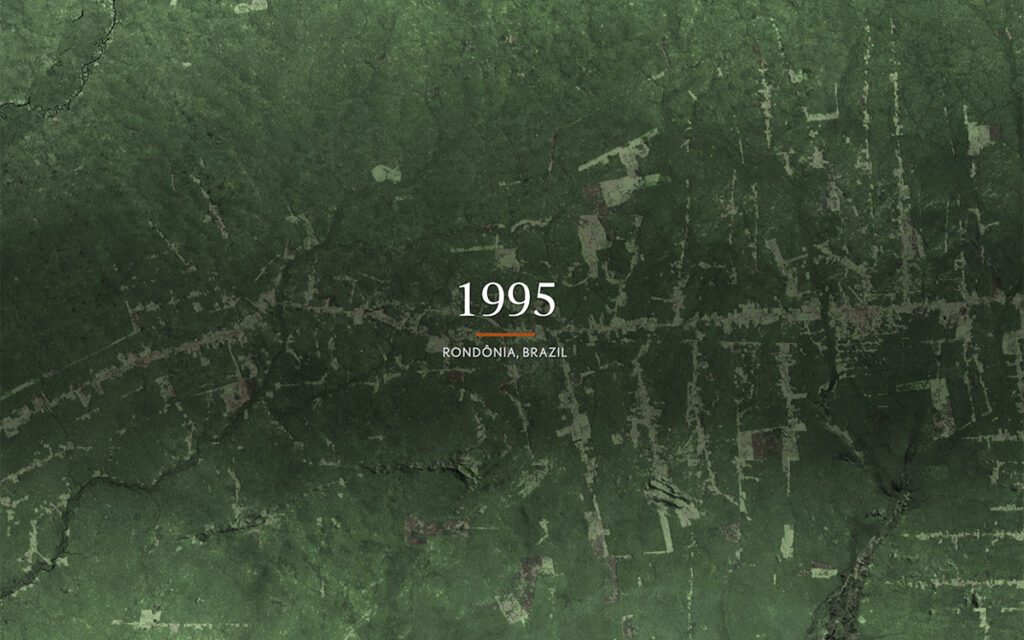
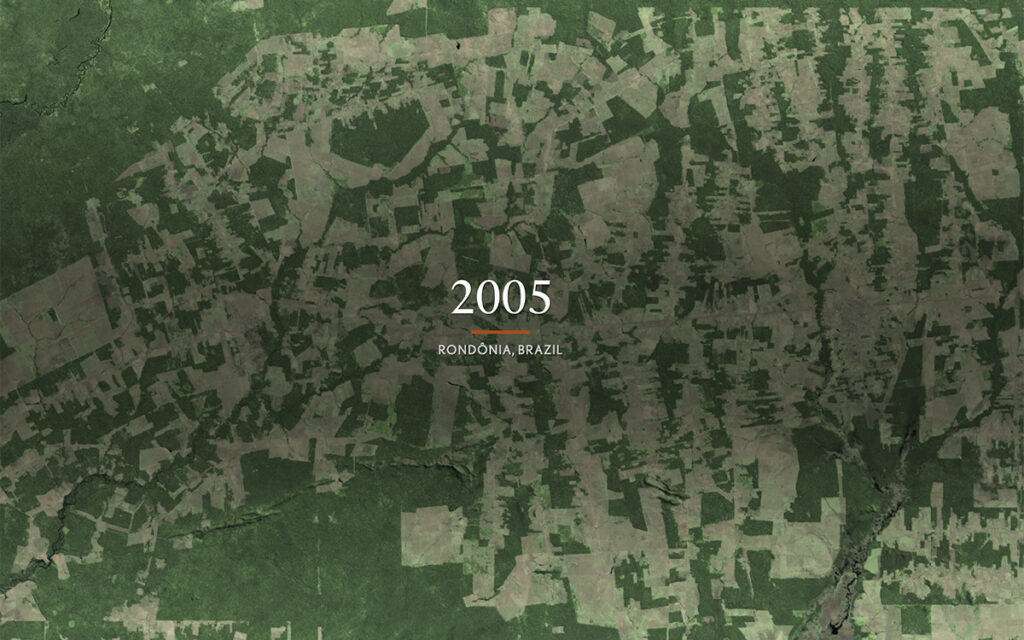
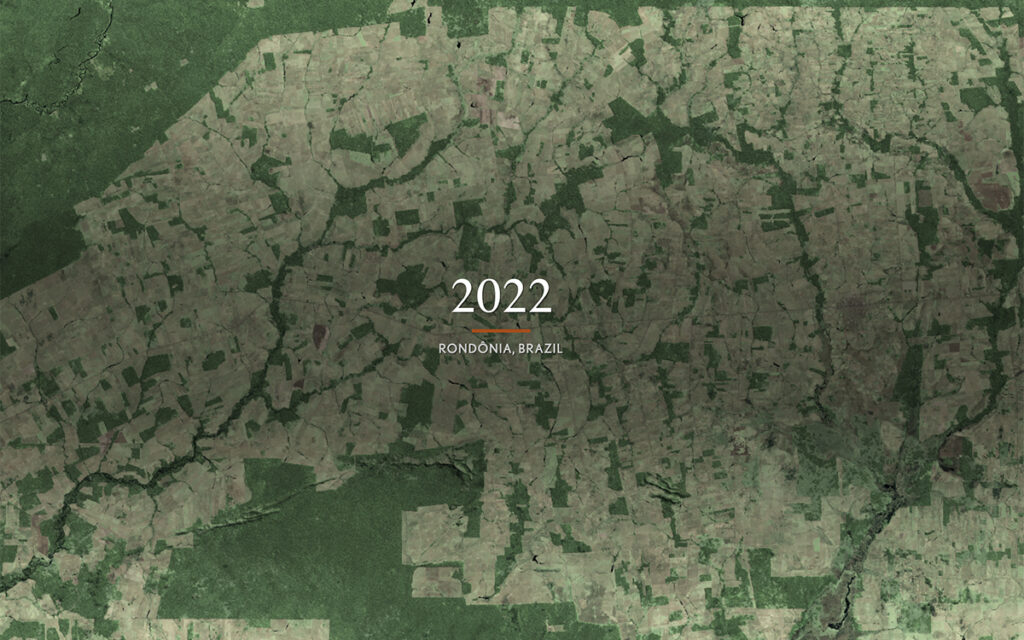
Which brings us into the present day. Since Lula’s election last year, I have seen a steady stream, seemingly every month, of “Amazon deforestation cut x percent” articles, but none that showed long-term figures so I could compare current data with past.
But now we have a chart that does, from the US-based environmental outlet Mongabay. The thick red lines represent data from the Brazilian government’s deforestation monitoring system, DETER—the creation of which is one reason Lula’s efforts against deforestation worked so well in the early millennium. (I’d love to know who comes up with these half-catchy, half-cringey acronyms . . .) The thick blue line is data from Imazon, an independent Brazilian NGO.
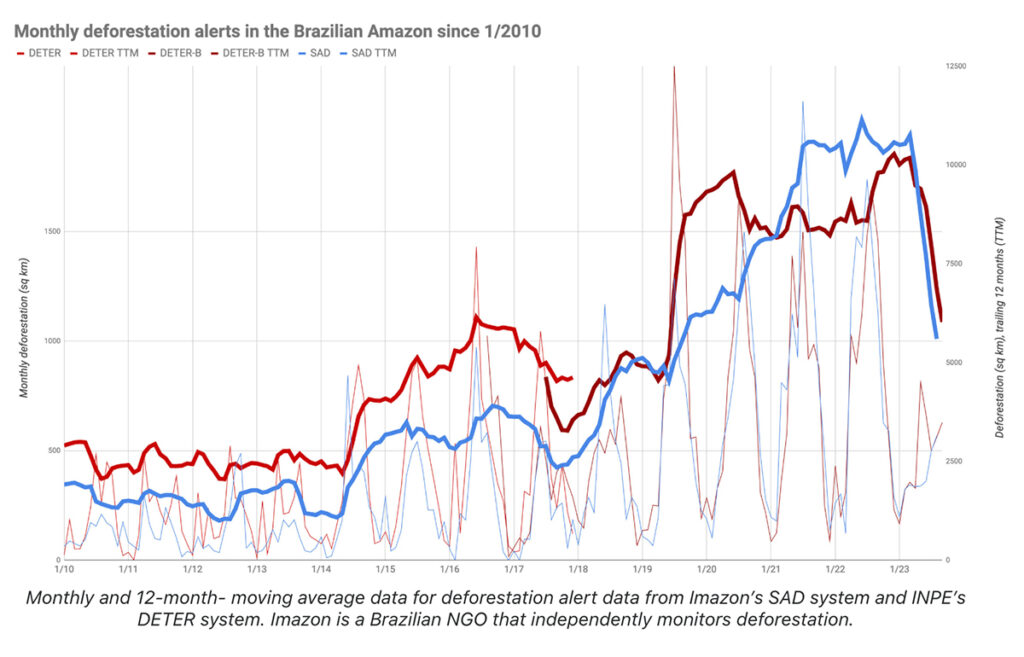
The bad news: Deforestation is nowhere near its historical low.
The good news: The drop, as you can see, is precipitous.
From a climate perspective, we can unreservedly cheer on this progress. The Amazon swallows up those carbon emissions you’ve all heard so much about, and deforestation does double-duty harm in that the activity on cleared land often produces more carbon. This change is why the Amazon is no longer the world’s largest carbon sink.
From the perspective of a small-scale farmer, a mine worker, or a cattle rancher, though, the question of halting deforestation as an unalloyed good is more complicated. The Council on Foreign Relations has an easy-to-digest visual presentation that goes deeper into the issue than I have space for here, including the balancing act between environmental and economic needs, how this plays into indigenous rights, and potential solutions.
From Lula’s perspective, he will play his cards right if he can both grow economic opportunity outside the Amazon and continue his energetic momentum against deforestation. We’ll see.
Quick hits
- Our latest podcast episode is on Israel-Palestine with geopolitical analyst Ian Bremmer. Bremmer shares his thoughts on whether the conflict will expand, what President Biden has done wrong and right, and more. Listen now.
- After upticks during the pandemic, violent crime, including homicides, has dropped back down to the steady levels the US has seen since 2011.
Below in the links section, fossil power peaks, female Vatican voters, space-born babies, and more.
By the Numbers
A pop-up section in which we celebrate numbers that represent substantial improvement in people’s lives
50M: The number of additional girls enrolled in school globally since 2015
61: The completion rate of girls in upper secondary education (high school), up from 54 percent in 2015
60: The percent of Africa’s urban population living in shanty towns, down from 71.9 percent in 2003
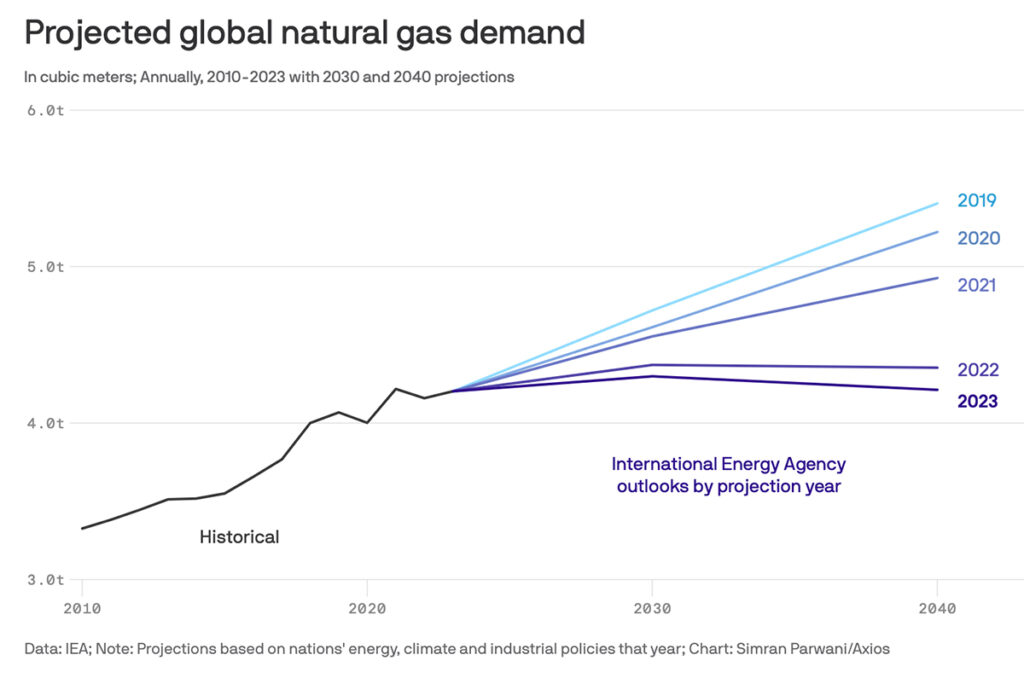
What Could Go Right? S5 E4
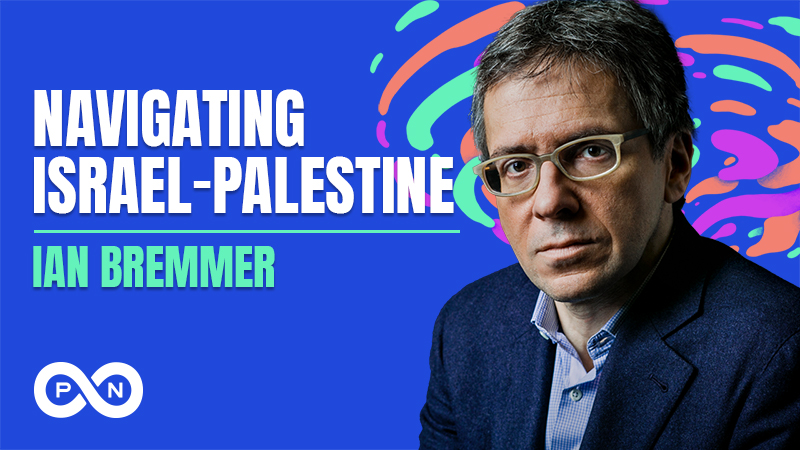
Will there be peace in the Middle East, or will the current conflict escalate? How can we understand the situation with moral nuance? And how do we parse information in the “fog of war”? On today’s episode, we talk with Ian Bremmer, foreign affairs analyst and president and founder of Eurasia Group, to examine the complicated crisis of Israel-Palestine. | Listen to the episode
Progress, Please
(Found good news? Tweet at us @progressntwrk or email.)
Other good stuff in the news 👶
Energy & Environment:
- Half of the world is past a peak in fossil power | Ember
- After Maui wildfire, there’s a chance to restore trees that arrived with Polynesian voyagers | AP
- Surging renewable energy sees record supply to Australia’s electricity grid | The Guardian
- A reality check about solar panel waste and the effects on human health | Inside Climate News
- One clear-cut fix would speed up Europe’s heat pump rollout | Bloomberg
- The zero-waste city: what Kiel in Germany can teach the world | The Guardian
Public Health:
- New initiative aims to sequence half a million genomes of people with African ancestry for health studies | Science
- More people are getting HIV preventive drugs, but disparities remain | Axios
- UNICEF signs deal to deliver new malaria vaccine in breakthrough for child survival | UNICEF
- Kids are much less likely to be killed by cars than in the past | Economist Writing Every Day
- Young driver fatality rates have fallen sharply in the US, helped by education, technology | AP
Science & Tech:
- What if a car frame, boat hull, or phone case could store energy | Anthropocene
- Can we take the ‘forever’ out of forever chemicals? | BBC
- Can humans reproduce in space? This startup wants to find out. | MIT Technology Review
- The most important tech company you’ve never heard of is a major reason computers keep getting faster | The Wall Street Journal
- ChatGPT is now granted full internet access by OpenAI—beyond 2021 | Interesting Engineering
Politics & Policy:
- EU to launch a humanitarian air bridge to bring aid to Gaza | Reuters
- Victory for transgender rights in Japan | AP
- Is this the end of prison phone fees? | Mother Jones
- Hull: The city set to give people the ‘right to grow’ | BBC
- Colombia and Mali leading efforts to improve air quality | The Guardian
Society & Culture:
- Women will vote at a Vatican meeting for the first time | The New York Times
- Five women to feature on new 2025 quarters | The Hill
- Twelve groups working for Israel-Palestine peace | Positive News
- Crime in England and Wales falls to lowest level on record | BBC
- Are younger generations committing less crime? | PPIC
- NHL rescinds ban on rainbow-colored Pride tape, allowing players to use it on the ice this season | AP
- ChatGPT for parents: AI is becoming mom and dad’s new sidekick | Axios
Economy:
- A surge in wealth has boosted most US households since 2020 and helped sustain economic growth | AP
- IRS to offer free ‘Direct File’ pilot to some taxpayers in 13 states for 2024 tax season. Here’s who qualifies | CNBC
- A (relatively) bullish case for Latin America | Americas Quarterly
- Percentage of Americans who own stocks reaches record high | Axios
TPN Member originals 🧠
(Who are our Members? Get to know them.)
Israel-Palestine:
- Israel is about to make a terrible mistake | Thomas L. Friedman
- Only the US can be an effective broker in the Gaza conflict | Fareed Zakaria
- What we know (and don’t know) about Iran’s role in the Israel-Hamas war | Ian Bremmer
- Palestinian right of return matters | Matthew Yglesias
- Let the activists have their loathsome rallies | Thomas Chatterton Williams
- Israel, Palestine, and the need for principled free speech | Matthew Yglesias
- How the media got the hospital explosion wrong | Yascha Mounk
- Why Israel’s anti-Hamas strategy is failing | Robert Wright
The Rest:
- The essential skills for being human | David Brooks
- Jonathan Rauch on why many people are unhappy in middle age (and how life gets better after fifty) | Yascha Mounk
- The sociopaths among us—and how to avoid them | Arthur C. Brooks
- What my grandmother taught me about the dignity of work | Theodore R. Johnson
- The troubled-teen industry offers trauma, not therapy | Maia Szalavitz
- Men without children | Richard V. Reeves
- Hakeem Jeffries would be House speaker if our system were healthy | Danielle Allen
- Listening is underrated | Scott Galloway
- The power of having the same teacher twice | Adam Grant
- Institute for Progress testifies before Congress on AI R&D policy | Caleb Watney
- Space, the final economic frontier (and maybe a cure for ‘secular stagnation’) | James Pethokoukis
- The techno-optimist’s fallacy | Matthew Yglesias
- Donald Trump’s gag orders | Isaac Saul
- The deficit balloons to $2 trillion | Isaac Saul
Department of Ideas 💡
(A staff recommendation guaranteed to give your brain some food for thought.)
Darwin the cynic | Everything is BS
Why we picked it: It makes a compelling argument, informed by Darwin’s theory of evolution, for cynicism and against idealism. As the essay’s author, evolutionary social scientist David Pinsof, writes, “We talk a lot about the dangers of cynicism. But we almost never talk about the dangers of idealism.” —Brian Leli
Until Next Time
Some Halloween-themed trivia for you: What percentage of Americans are afraid of “clusters of small holes”—and can you please explain to us what that even means? 🎃



[…] quickly, and that mega-emitter China’s emissions will lastly fall in 2024. Deforestation is reversing in Brazil, in addition to elsewhere within the Amazon. And after a long time of pushing again, at this 12 […]